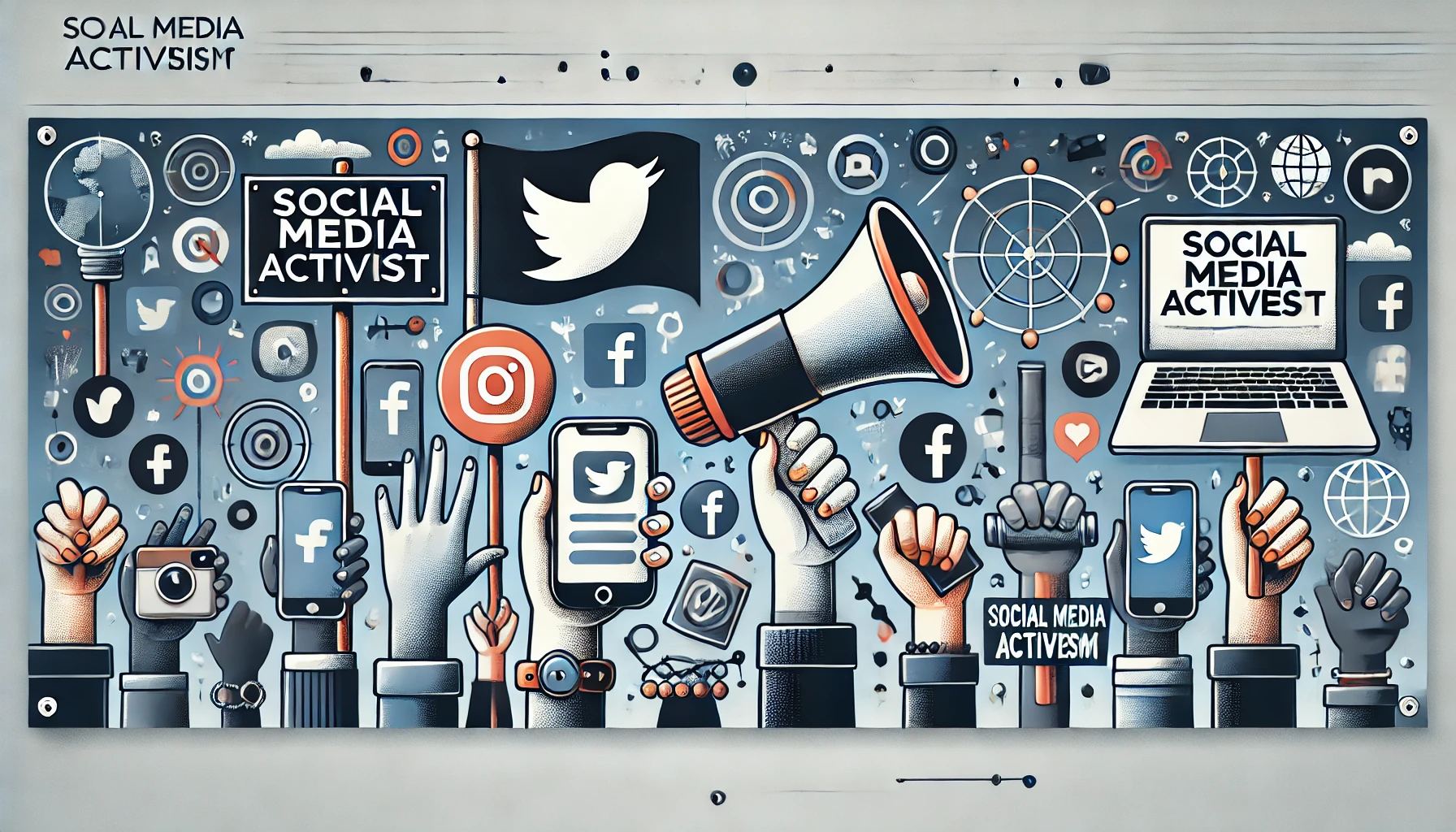Social Media Activism: Making a Difference or Just Noise?

Strong 8k brings an ultra-HD IPTV experience to your living room and your pocket.
In today’s digital world, activism has moved from the streets to our screens. We see people rallying for social justice, climate action, human rights, and more—all from the comfort of their devices. But with every trending hashtag and viral post, one question looms large: is social media activism truly impactful, or is it just noise?
The Power of Digital Advocacy
Social media has made activism more accessible than ever. On top social media platforms like Twitter, Facebook, Instagram, and TikTok, information can spread within seconds, reaching audiences far and wide. In situations where physical protests aren’t possible, such as during lockdowns or in regions with strict public assembly laws, social media becomes a powerful tool for raising awareness.
For instance, the #BlackLivesMatter movement gained massive traction online, bringing global attention to systemic racism and police brutality. This virtual momentum pushed the movement beyond U.S. borders, sparking solidarity protests worldwide. By using top social media platforms, individuals can bring attention to issues that traditional media might overlook.
Forbes notes that digital advocacy has led to real-world change, citing examples where online movements have pressured companies to change policies, governments to address injustices, and society to become more aware of critical issues.
Slacktivism: Awareness Without Action?
However, social media activism has a downside—what some call “slacktivism.” This term refers to low-effort online activism, like retweeting, liking, or sharing posts without taking real action. While these gestures help spread awareness, critics argue that they don’t necessarily lead to meaningful change. Clicking “share” on a post takes seconds, but it rarely involves the same level of commitment as showing up for a protest, donating to a cause, or signing a petition.
In fact, studies have shown that people who engage in slacktivism might feel a sense of accomplishment without making a tangible impact. Psychologists explain that these small online gestures can satisfy a person’s desire to help, which might reduce their motivation to take more substantial actions offline. Psychology Today discusses this phenomenon, noting that slacktivism often creates an illusion of involvement without the heavy lifting.
The Pros and Cons of Hashtag Activism
Hashtag activism—using specific hashtags to raise awareness for a cause—has been a core strategy on social media. Campaigns like #MeToo and #ClimateStrike have reached millions, inspiring conversations and prompting action at all levels, from community programs to government policies. But even hashtags can fall victim to misuse. Sometimes, people or brands use trending hashtags solely to gain visibility, diluting the message and distracting from the cause.
Moreover, hashtags can oversimplify complex issues. A single hashtag can’t capture the depth and nuances of social justice, climate change, or mental health, which may result in people seeing issues as trends rather than long-term battles. To better support digital causes, activists suggest combining hashtag sharing with genuine engagement, like supporting organizations, staying informed, or volunteering.
How to Be a Responsible Social Media Activist
To make a real impact through social media, it’s essential to move beyond passive support. Here are a few ways to responsibly and effectively engage in social media activism:
- Educate Yourself and Others: Read articles, watch documentaries, and listen to voices within the movement. Understanding the complexities of the issues you care about is crucial. For a range of resources, visit Human Rights Watch and similar websites that provide in-depth, unbiased insights.
- Donate and Support Organizations: Sharing a post is easy, but supporting credible organizations can create a lasting impact. Whether it's a one-time donation or a monthly contribution, these funds often go directly to helping communities in need.
- Amplify Marginalized Voices: Social media platforms can sometimes amplify voices with larger followings, overshadowing smaller or marginalized communities. Be mindful to elevate voices that might otherwise go unheard, helping spread their stories and perspectives.
- Be Consistent and Committed: Real change doesn’t happen overnight. Commit to long-term engagement, even when a cause isn’t trending. Following accounts that regularly share updates on the issue can help you stay informed and involved.
- Use Multiple Platforms: Each social media platform has its strengths. Twitter is effective for real-time news, Instagram works well for visual storytelling, and TikTok can simplify complex issues into engaging content. By using different platforms strategically, you can reach diverse audiences. For more about leveraging various platforms, check out Sprout Social's guide on social media best practices.
So, Is It Making a Difference?
Social media activism has undoubtedly raised awareness on countless issues, but real change often requires more than awareness alone. The key lies in using social media as a starting point, not the endpoint. Meaningful activism combines online engagement with offline action, creating a bridge between awareness and tangible change.
While it’s easy to question the impact of digital activism, it's equally important to recognize that social media has given everyday people a platform to voice their concerns. By being mindful, informed, and proactive, we can turn social media activism into a force that genuinely makes a difference—without just adding to the noise.
Note: IndiBlogHub features both user-submitted and editorial content. We do not verify third-party contributions. Read our Disclaimer and Privacy Policyfor details.


